War

激战前夜
May 1, 1957
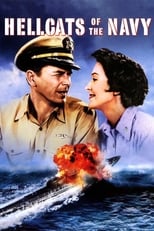
Hellcats of the Navy
May 1, 1957
Future "first couple" Ronald Reagan and Nancy Davis made their only joint film appearance in Hellcats of the Navy. Ronnie plays Casey Abbott, commander of a WW2 submarine, while Nancy portrays navy nurse Helen Blair, Abbott's off-and-on girlfriend. During a delicate mission in which his sub is ordered to retrieve a revolutionary new Japanese mine, Abbott is forced to leave frogman Wes Barton (Harry Lauter) behind to save the rest of his crew. But Abbott's second-in-command Don Landon (Eduard Franz) is convinced that Abbott's sacrifice of Barton was due to the fact that the dead man had been amorously pursuing Helen.
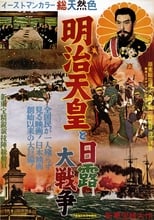
Emperor Meiji and the Great Russo-Japanese War
April 29, 1957
Meiji Tenno portrays the buildup to the Russo-Japan War. In addition to showing the political events that led to war, it also shows the era from the story of a farm family in rural Japan that sends their son off to war. As such, it could be considered an anti-war movie, showing how, while war is devised by governments, the people do not really understand what war is, and its combatants often do not know what they are fighting for.

Kanal
April 20, 1957
During the last few days of the Warsaw Uprising following World War II, a modest group of Resistance members remains. The band must take refuge in the sewers under the orders of leader Zadra, but it's only a matter of time before they will have to emerge. However, when they try, they are met only with intense hostility from the Nazis. Despite their attempts stay resolute through immense mental strain, it becomes increasingly apparent that they may be doomed.
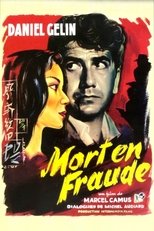
Mort en fraude
April 9, 1957
In 1950 Saigon Paul Horcier, a young Frenchman is on the run for currency trafficking. A Eurasian woman he meets takes him to shelter in a village in No man's land between the French forces and the Viet Minh. He grows to have enormous empathy with the locals and their poor living conditions. He ultimately lays down his life on their behalf.
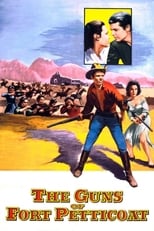
The Guns of Fort Petticoat
April 1, 1957
Opposing his commanding officer's decision to attack a group of innocent Indians and wipe them out, Lt. Frank Hewitt leaves his post and heads home to Texas. He knows that the attack will send all of the tribes on the warpath and he wants to forewarn everyone. He gets a chilly reception back home however. With most of the men away having enlisted in the Confederate army Frank, a Union officer, is seen by the local women as a traitor. He convinces them of the danger that lies ahead and trains them to repel the attack that will eventually come.
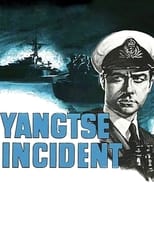
Yangtse Incident: The Story of H.M.S. Amethyst
April 1, 1957
While sailing lawfully up the Yangste in 1949, the British warship Amethyst found its return to the open sea blocked by Communist Chinese shore batteries that unexpectedly opened fire. In charge, Lietenant Commander Kerans was not however prepared for his crew and his ship to remain as a hostage for the Chinese to use as an international pawn.
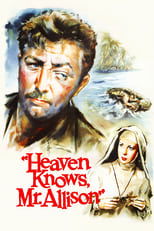
Heaven Knows, Mr. Allison
March 13, 1957
A Roman Catholic nun and a hard-bitten US Marine are stranded together on a Japanese-occupied island in the South Pacific during World War II. Under constant threat of discovery by a ruthless enemy, they hide in a cave and forage for food together. Their forced companionship and the struggle for survival forge a powerful emotional bond between them.

Duped Till Doomsday
March 7, 1957
East Germany's contribution to the 1957 Cannes Film Festival was the wartime melodrama Betrogen bis zum Juengsten Tag. Had the film been released in the U.S., the title would probably have translated to Duped Till the Last. The film condemns the Nazi mindset by concentrating on a particularly odious cover-up. When his son is involved in the accidental killing of a girl, a Gestapo general pulls strings to save the boy from prosecution. The general manages to pin the blame for the killing on a group of Russians, whereupon he gives the men under his command carte blanche to round up and execute as many innocent Russians as they wish. This act of brutality is contrasted with the pangs of guilt suffered by the son and his co-conspirators.
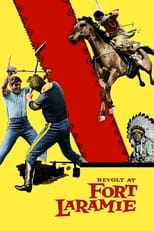
Revolt at Fort Laramie
March 1, 1957
At the breaking of the Civil War the garrison of Fort Laramie splits between the sympathezers of the two different factions, but when the fort is attacked by the Sioux, they unite their forces to fight them.

History Lesson
February 26, 1957
In 1933 Berlin, Bulgarian communist Georgi Dimitrov is caught up in the Reichstag fire trials when Nazis seek to frame communists. Despite orchestrated provocations and mass repression, Dimitrov’s defiant courtroom defense exposes the baseless charges, forcing his acquittal and securing him political asylum in the Soviet Union.
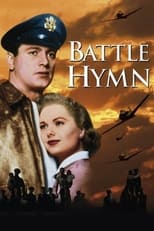
Battle Hymn
February 14, 1957
Dean Hess, who entered the ministry to atone for bombing a German orphanage, decides he’s a failure at preaching. Rejoined to train pilots early in the Korean War, he finds Korean orphans raiding the airbase garbage. With a pretty Korean teacher, he sets up an orphanage for them and others.
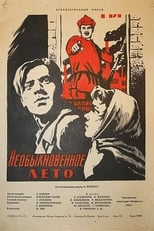
An Unusual Summer
February 7, 1957
The film takes place in 1919 in Saratov. Student Kirill Izvekov becomes Commissioner of the Red Army and participates in the battle with Wrangel and the capture of the city.

Mayerling
February 4, 1957
Mayerling is the name of a notorious Austrian village linked to a romantic tragedy. At a royal hunting lodge there, in 1889, Crown Prince Rudolf--desperate over his father's command to put away his teenage mistress, the Baroness Marie Vetsera--shot her to death and killed himself. The misfortune may indeed have been a murder-suicide, but perhaps it was a political assassination, or even the result of a lunatic family vendetta: scholarship is still catching up with the facts.
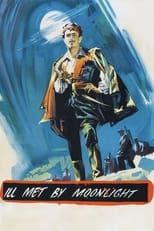
Ill Met by Moonlight
January 31, 1957
Led by British officers, partisans on Crete plan to kidnap the island's German commander and smuggle him to Cairo to embarrass the occupiers.

The Wings of Eagles
January 31, 1957
The story of Frank W. "Spig" Wead - a Navy-flyer turned screenwriter.

Men in War
May 3, 1957
In Korea, on 6 September 1950, Lieutenant Benson's platoon finds itself isolated in enemy-held territory after a retreat. Soon they are joined by Sergeant Montana, whose overriding concern is caring for his catatonic colonel. Benson and Montana can't stand each other, but together they must get the survivors to Hill 465, where they hope the division is waiting. It's a long, harrowing march, fraught with all the dangers the elusive enemy can summon.
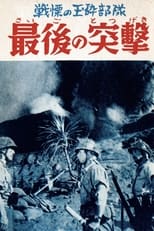
Saigo no totsugeki
January 22, 1957
A narrative depicting the appearance of soldiers scattered in Rabaul during the Pacific War. The original work of Yoshinori Matsuura was dramatized by Toyama Tetsu of “Smuggling of the Body”, also directed by Yutaka Abe, and Shigeyoshi Mine of “Densuke's Propaganda” was in charge of the shooting. The main performers are Michitaro Mizushima of “Smuggling of the Body”, Ryoji Hayama of “The Sorrowful Garden”, Shoji Yasui of “The People of Okino”, Shiro Osaka of “Lonely Man”, “Tetsuji Kawakami Story 16” In addition to Hiroshi Nihonyanagi, Shinsuke Maki, Isamu Kosugi of the "Hunger Soul", Ko Mishima, Satoshi Nishimura, Saburo Hiromatsu, Hiroshi Kondo and others.

Pure-Hearted Unit
January 15, 1957
A story of young people in the immediate aftermath of World War II, their post-war careers, sorrows, and triumphs.

Flying in the Air
January 9, 1957
The movie depicts the youth of kamikaze pilots who scattered young lives in the sky.